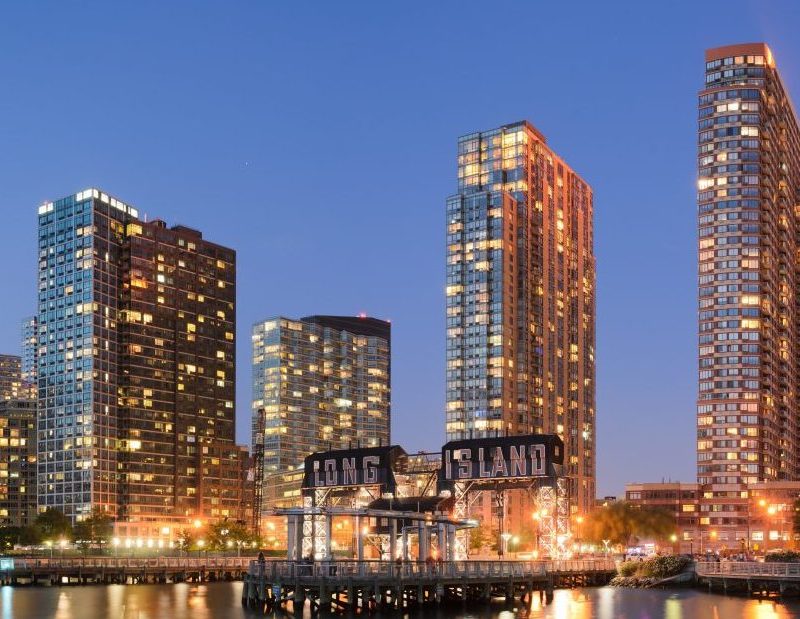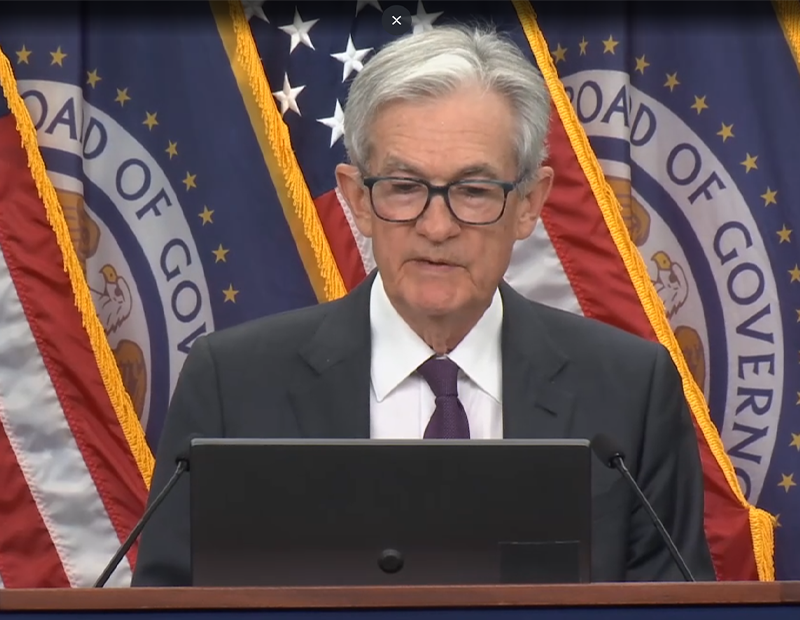Is Amazon Re-Thinking Long Island City?
A report that Amazon might abandon plans for a 4 million-square-foot campus in Queens sparked heated responses from supporters and critics.

Waterfront view of Long Island City, N.Y.
Amazon’s plans for its new headquarters took a new twist on Friday when a report surfaced that the company may rethink its choice of New York City as one of two main locations.
The Washington Post cited conversations with two people who said that local opposition to the headquarters might scuttle the proposal to develop 4 million square feet in Long Island City, a section of Queens across the East River from Manhattan.
It was unclear on Friday whether Amazon was nearing a decision to re-open the search, or is attempting to increase pressure on the opposition. The Post is owned by Jeff Bezos, Amazon’s founder.
But abandoning a Long Island City campus would almost certainly end Amazon’s plans to take 1 million square feet at One Court Square, a Queens landmark and the borough’s tallest building. As an interim measure, Amazon would occupy the 1.5 million-square-foot building, which is owned by Savanna. The space became available when Citigroup announced its departure from the property last year. The permanent home of the Long Island City campus would be combination of publicly- and privately-owned sites on the East River waterfront.
Supporters and Critics Respond
Local industry leaders responded to the news report by urging elected officials and New York City to back Amazon’s plan. “New York City is the new capital of the tech industry, and this is where Amazon belongs,” said Carlo Scissura, president & CEO of the New York Building Congress, in a statement. “Their move to Long Island City will have an incredible economic impact on the five boroughs, create tens of thousands of high-quality jobs and send a message to companies around the world that New York is the place to be.”
In an apparent dig at officials who oppose the project, the leader of the powerful Building and Construction Trades Council of Greater New York said that it was time to “stop the showboating” and “put the interests of our city ahead of politics and personal agendas.”
“New York needs a strong middle-class workforce with good-paying jobs, and that’s what Amazon will deliver,” said Gary LaBarbera, the organization’s president, in a statement.
Critics of the Long Island City proposal sent fresh salvos on Friday. “If the (Amazon) deal falls apart, they will have nobody to blame but themselves,” said Stuart Appelbaum, president of the Retail, Wholesale and Department Store Union (RWDSU), in a statement. “A major problem is the way the deal was put together shrouded in secrecy and ignoring what New Yorkers want and need. They arrogantly continue to refuse to meet with key stakeholders to address their concerns, despite requests from New York’s top elected officials to do so.”
Meanwhile, some local real estate insiders shrugged off the report as a negotiating move. “I assume it’s more posturing,” said Gary Malin, president of Citi Habitats, a New York City residential brokerage firm. “They did a lot of due diligence, selected this area and they want the deal to be honored.”
Malin doubts that Amazon would abruptly pull out of the deal, considering the scale of Amazon’s plans and of the government incentives. “They’re probably just a little frustrated about the back-and-forth about getting it approved,” said Malin. “I think it’s standard operating procedure. It’s a pretty big negotiating deal. There’s always a certain amount of hesitation and (Amazon has) power.”
Bones of Contention
Long Island City is one of three sites announced by Amazon in November. Also on the agenda is an initial 4 million-square-foot commitment to the National Landing neighborhood of Arlington, Va. A third component, consisting of a 5,000-person, operations-related facility dubbed the Center of Excellence, would be located in Nashville, Tenn.
In contrast to the overwhelmingly warm reception from elected officials in Virginia and Nashville, the response from their New York City counterparts is sharply divided. Both Gov. Andrew Cuomo and Mayor Bill DeBlasio are staunch supporters of the Amazon campus, but the plan has drawn high-powered opponents from the start.
One bone of contention is the large incentive package promised to Amazon, including $1.5 billion in tax credits and cash grants from the state and another $1 billion from New York City. Critics argue that the incentives offered to Amazon would be better allocated to other needs.
In a statement issued at the time of Amazon’s announcement in November, New York City Council Speaker Corey Johnson demanded to know “why a company as rich as Amazon would need nearly $2 billion in public money for its expansion plans at a time when New York desperately needs money for affordable housing, transportation, infrastructure and education.”
Johnson also criticized the agreement for inadequate local input and for circumventing the city’s standard approval process. “I find that lack of engagement and the fact that the negotiations excluded the City Council – which is elected by New Yorkers to guide land use projects with communities in mind – extremely troubling,” he commented.







You must be logged in to post a comment.